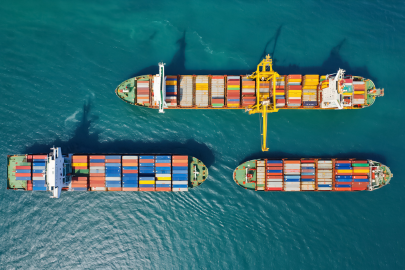The Transport Industry in Times of War: Taking the Highway to Profits
Global conflicts have profound effects on global trade. For logistics operators, these geopolitical events force supply chains to shift, create unpredictable tariffs, and affect security measures. While industry observers often focus on the risks, the transport industry can also find opportunities by leveraging transportation industry market research to adapt routes, fleets, and strategies.
In this blog, we describe how armed conflicts impact transport operations, and explain how customized industry research services can help logistics and freight providers turn volatility into advantage. We also show how partnerships with established research partners, such as Unimrkt Research, can help firms position themselves strategically in a challenging environment.
How Conflicts Disrupt the Transport Industry
- Tariff Changes and Trade Restrictions
When countries engage in conflict or are subject to sanctions, tariffs and trade barriers change rapidly. Carriers face new routes or rising costs, and they must reroute shipments to avoid restricted areas or reformat their pricing strategies to account for higher import duties. Industry research services can track changes in customs and trade agreements, giving carriers clearer visibility into cost-effective routes.
- Supply and Demand Shifts
Warfare often amplifies demand in some sectors such as energy, construction, or humanitarian goods, while reducing it in others. For example, urgent shipping needs for medical supplies might surge, while consumer goods decline. Detailed transportation industry market research advises fleet and warehouse managers on how to shift capacity to where it is most needed at the right time.
- Changing Goods Composition
When conflict zones redefine trade routes, the types of cargo transported change too. Companies begin shipping heavy-duty military equipment, energy resources such as LNG or crude oil, or even perishable humanitarian relief items. Niche opportunities emerge for secure transport, cold-chain logistics, and fragile cargo handling. Automotive industry market research can highlight where to invest in specialized trucking or rail assets that support these new market needs.
- Border Closures and Geographical Shifts
Border closures and blockades are frequent during geopolitical strife. Transportation firms need to identify alternate corridors, such as via the Caspian Sea or through Central Asia, when the usual transit points are inaccessible. This is where transportation industry market research plays a vital role in estimating transit times, border regulations, route safety, and feasibility.
- Sanctions and Compliance Complexity
Sanctions impact shipping lines, freight operators, and even cargo destinations. Choosing compliant carriers becomes a complex task. Transporters must remain aware of flag-state restrictions, embargoes, or intelligence about smuggling routes. Automotive market research and industry research company reports help logistics managers understand restrictions before disruptions occur.
- Insurance and Security Costs
Conflict zones increase risk, which in turn results in higher insurance premiums and security costs. Transport companies must assess whether to reroute, invest in escorts or tracking tools, and include security surcharges in their bills. Market data can help businesses compare long-term costs between riskier routes and safer but longer alternatives.
How Transport Industry Research Services Help Your Business
Transport companies no longer rely solely on load planning and relationships. Modeling and mapping are now required for forecasting, cost-effectiveness, compliance, and risk mitigation. Here is how comprehensive transportation industry market research activates growth:
- Strategic Route and Corridor Mapping
Having access to up-to-date data on conflict zones, sanction zones, border opening hours, and port infrastructure helps logistics companies choose alternative routes quickly and accurately. Industry research services compile real-time market data on road, rail, sea, and air corridors, enabling informed decision-making.
- Scalable Logistics and Fleet Planning
Understanding shifting demand means owning fewer idle trucks or ships during low-volume times. Connected automotive market research helps fleet owners predict seasonal changes, such as increased energy transport to Europe or humanitarian aid in crisis zones. Market data from this type of research support agile deployment planning.
- Digital Transformation Roadmaps
As cross-border transactions become riskier, logistics firms are digitizing for visibility and safety. IT industry market research uncovers the right vendor ecosystems for GPS tracking, real-time TMS, or blockchain-based compliance tools. The right infrastructure helps reduce errors and ensures faster adjustments if borders close without notice.
- Risk and Compliance Readiness
By blending conflict zone tracking, sanctions monitoring, and insurance cost benchmarking, transport companies can create turn-key risk dashboards. Managed by industry research companies, these dashboards help stakeholders take action quickly, such as rerouting shipments proactively.
- Customized Value-Added Services
Research may reveal that clients need temperature-controlled fleets, pet food logistics, or secure transportation for sensitive goods. Transporters can tap emerging markets and increase margins by partnering with qualified freight forwarders or launching new service verticals.
Adapting to Uncertainty with Data Accuracy
Even the smartest transporters can struggle in volatile times, but transportation industry market research equips them with tools to absorb shocks and respond proactively.
- Market Trend Data
Data on freight volumes, route shifts, cargo types, insurance cost spikes, and geopolitical alerts enable continuous monitoring. This type of market data allows logistics firms to spot emerging market trends before competitors do.
- Scenario-Based Forecasting
What if the Suez Canal closes due to hostilities, or a neighbouring country shuts its airspace? In such situations, reliable forecasting starts with accurate and timely market data collection. Research teams gather data on freight rates, route delays, geopolitical developments, and insurance premiums to help businesses have the market information to simulate different scenarios and plan better.
- Network and Partner Mapping
Transport chains rely on players such as customs brokers, warehouse operators, insurance providers, and freight forwarders. When conflict arises, these partners may become bottlenecks. Industry research services provide market data to identify the performance levels, compliance readiness, and route adaptability of each partner.
Here are several types of transportation industry market research and how they can be used:
- Transportation Industry Market Research: Real-time route and route compliance market data
- Automotive Industry Market Research: Market data that helps telematics adoption and fleet strategies calibrated to regional demand.
- IT Industry Market Research: Market data to inform digital transformation blueprints and technology adoption roadmaps.
- End-to-End Research Services: Integrated vertical market data with robust competitive benchmarking.
Unimrkt Research - Your Ideal Transport Industry Partner
Conflict-driven uncertainty in the transport sector may seem like a challenge at first. However, those who adapt strategically and early find themselves filling gaps and unlocking new opportunities. With reliable transportation industry market research, logistics operators can update routes, shift assets, embrace digital tools, and launch specialized services that drive revenue, even as the global situation shifts.
Would you like a free consultation or sample report? Contact Unimrkt Research, your trusted industry research company, ready to guide you through every stage of transport innovation and profit.
When transportation companies seek a trusted partner in volatile times, few match the credentials of Unimrkt Research. As a certified industry research company, Unimrkt upholds ISO 20252 and ISO 27001 standards, ensuring your data remains secure and actionable. With global capabilities, Unimrkt helps logistics leaders pivot, innovate, and lead with confidence. Contact us at +91-124-424-5210 or email sales@unimrkt.com. Alternatively, you can fill out our contact form, and our team will reach out to you shortly.
Frequently Asked Questions
Q1. What is transportation industry market research?
It is the systematic collection and analysis of data on routes, demand, freight composition, regulations, costs, insurance rates, and geopolitical risks to help logistics operators make informed decisions.
Q2. How does automotive industry market research differ?
It focuses more narrowly on fleet readiness, vehicle technology adoption, fuel efficiency, and telematics integration. Transport research aligns that with route viability and cargo optimization.
Q3. How can IT industry market research help transport professionals?
It identifies digital tools for tracking, automation, compliance checks, and stakeholder connectivity; overall increasing efficiency while reducing risk.
Q4. What are the effects of global wars on freight costs?
War events often cause freight rates to rise due to route closures, regulatory delays, rerouting costs, and higher insurance premiums.
Q5. Can Unimrkt support cross-border logistics?
Yes. We conduct research on data for route due diligence, customs controls, shipments, trade agreement data, and port and corridor selection.
Q6. How fast can Unimrkt deliver market data?
We offer 7-day rapid market scans as well as detailed 4–6 week strategic research tailored to specific transport modes or products.
Q7. Is Unimrkt Research an industry research company or just a domestic firm?
We are a global research partner. We serve clients across Asia, Europe, and Americas in industries ranging from transport and automotive to IT and manufacturing.
Quick Enquiry
Customer Service, We Make it Better
Recent Posts
- How to Clarify and Align Your Research Goals for Maximum Impact
- Mining Valuable Data: The Driving Force for an Effective Growth Marketing Strategy
- Speaking the Customers Language: 7 Tips for Meaningful Qualitative Research
- Creating Value for Investors: The Benefits of Primary Market Research
- Utilizing Closed-Ended Questions For Quantitative Market Research
- Capturing the Changing Interests of Millennials Through Qualitative Research
- Refining Unit Economics with Robust Quantitative Market Research
- A Concise Guide to Quantitative Market Research
- 3 B2B Market Research Trends That Could Shape 2024
- Eyes on 2024: Changes That Might Disrupt the Healthcare Industry This Year
- Cracking the Language to Make Survey Questions Inclusive in 2024
- Attracting Investors: How Market Research Can Solidify Your Case
- Solid Foundations: Ways to Enhance Trustworthiness in Qualitative Research
- What Makes CATI Research So Effective?
- Moderator Qualities That Improve Qualitative Market Research
- 5 Consumer Market Trends That Will Define 2024
- What are the strengths of quantitative research?
- How to Make Your Partnership with Primary Market Research Firms Fruitful
- A Quick Guide to Harnessing the Strengths of Quantitative Research
- Advice from Your Research Partner: Don't Compromise Quality on Online Surveys
















